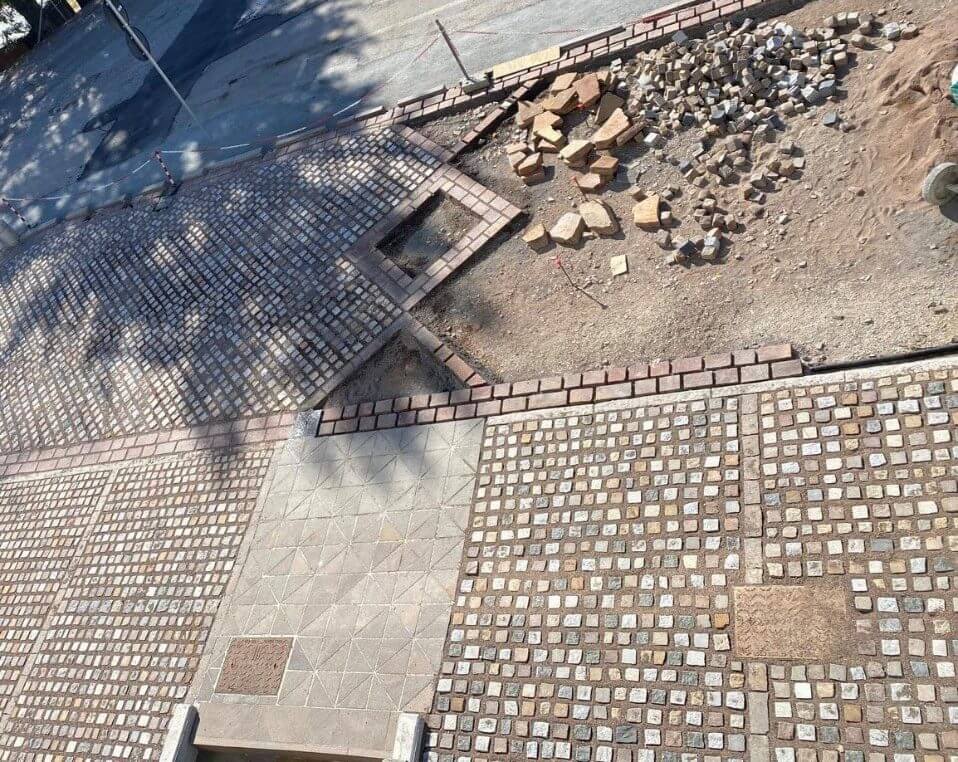THE MOST COMMON SETTING PATTERNS FOR COBBLES
OVERLAPPING ARCS:
Needless to say, this is the most common setting pattern for cobbles and which is suitable for any kind of surface – for both light/medium and heavy traffic. It consists of a series of overlapping and adjacent arcs, so that the overall pattern, according to the size of the cubes, adapts to the area to be paved without excessive changes to the edges.
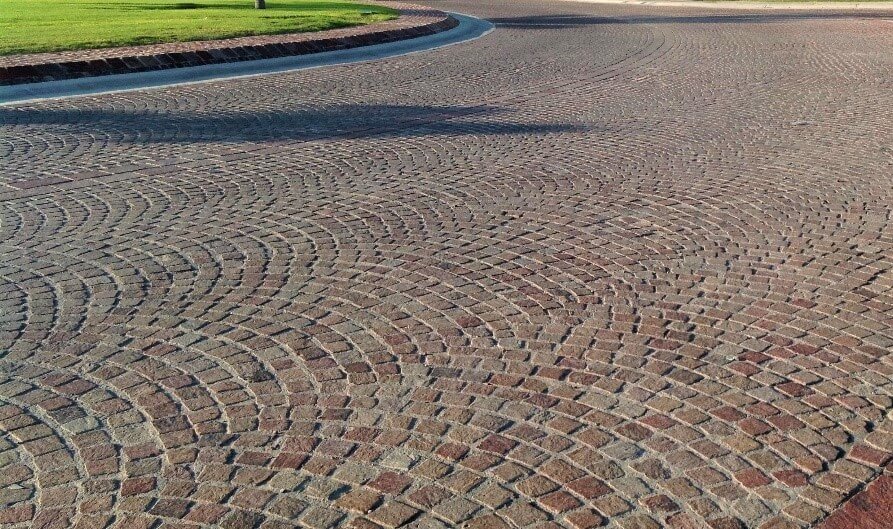
ALTERNATING OVERLAPPING ARCS:
This setting pattern is similar to the classic one, but it differs from it in the inversion of the curvature of the line of the building elements. The overall effect is that of a sinusoidal wave.
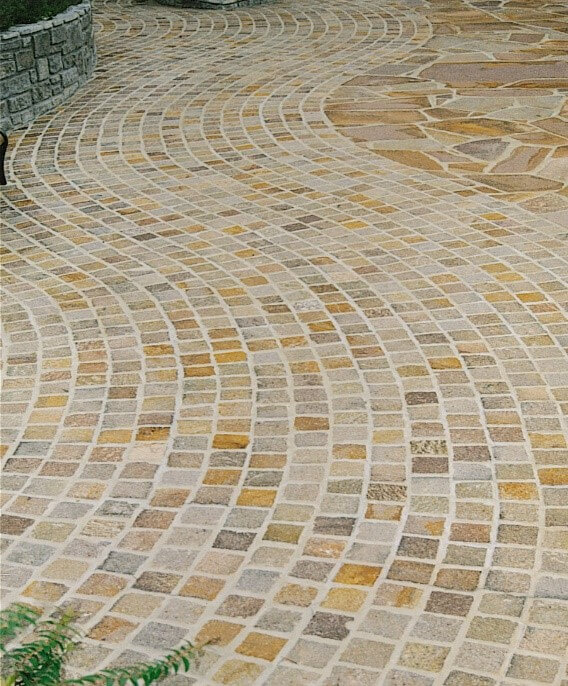
PEACOCK TAIL OR FAN
This setting pattern is complex, since the pattern must be executed with extreme precision to avoid the loss of paving uniformity. Usually, to make the layout more compact, small cobbles are preferred.
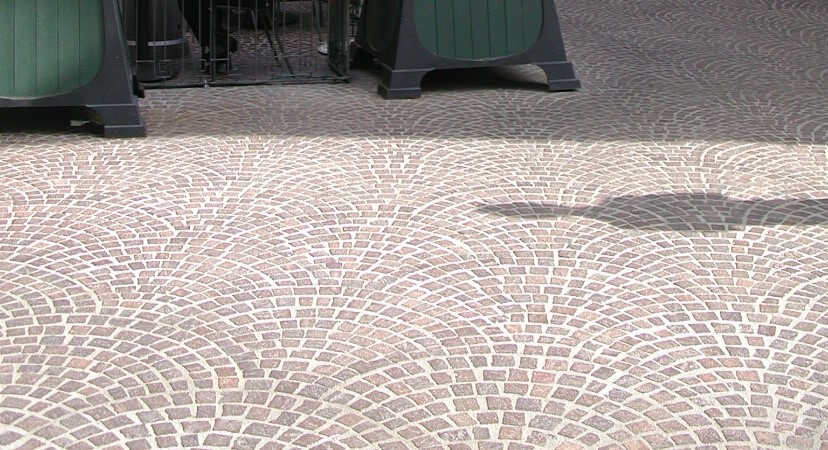
CONCENTRIC CIRCLES
Cobbles are laid out in concentric circles. The colour variations among the elements between one circle and the other one help in visualizing the pattern – more often that not, the outermost row is realized with porphyry cobbles of different colour or with different stones (granite, marble, and so on).
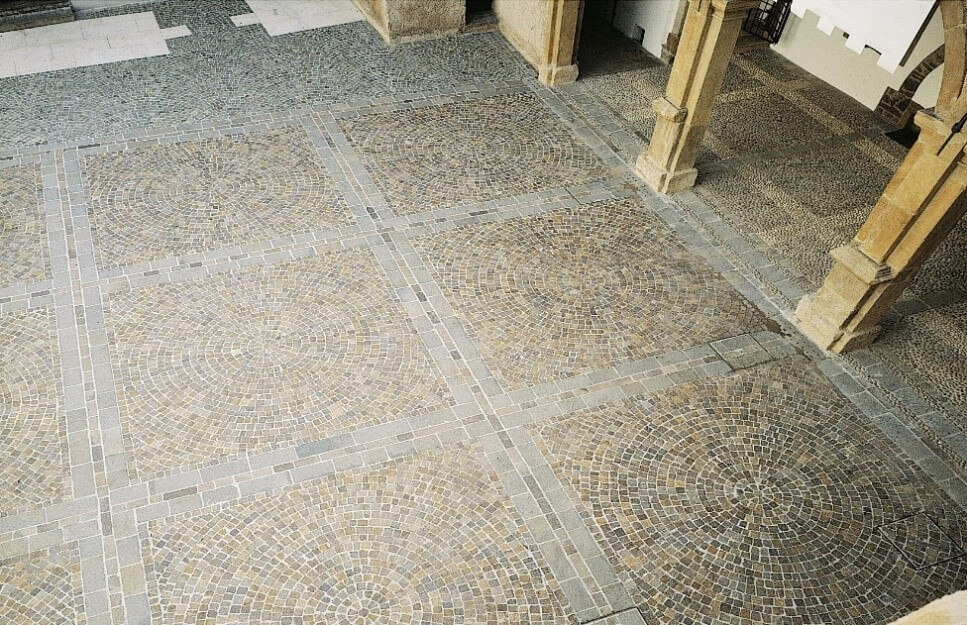
PARALLEL ROWS
With this kind of setting pattern it is possible to obtain different designs (orthogonal, parallel, herringbone, and so on) as well as different regular squarings (squares, rectangulars, trapezoids, and so on).
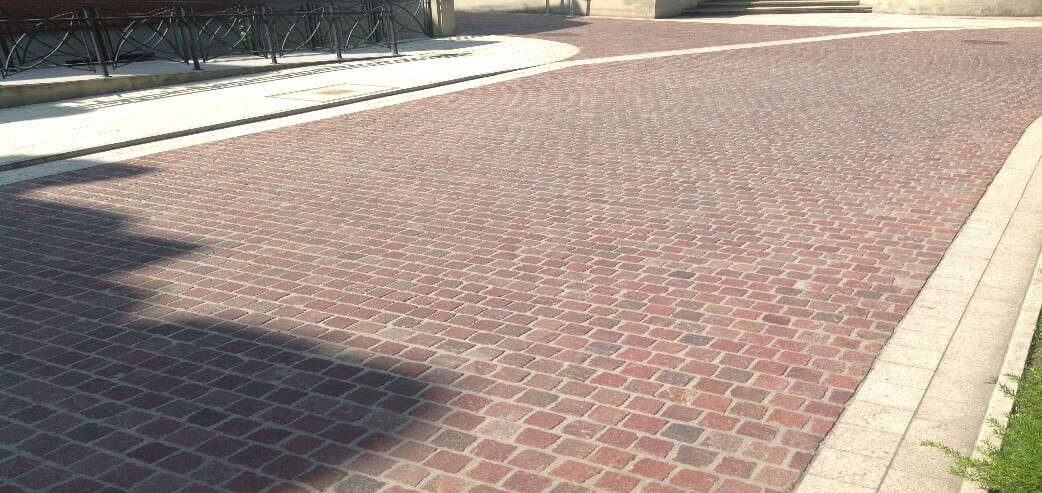
PAVING WITH DRAINING JOINTS
